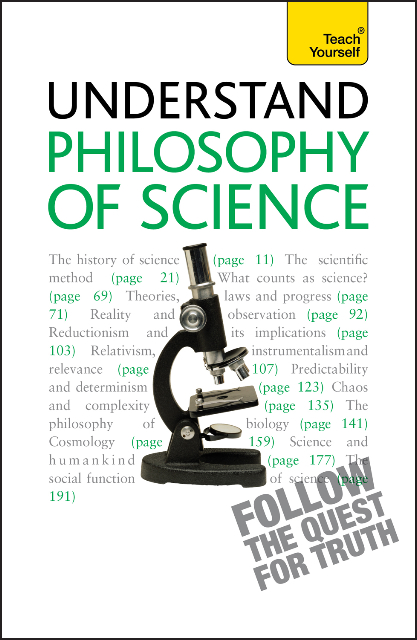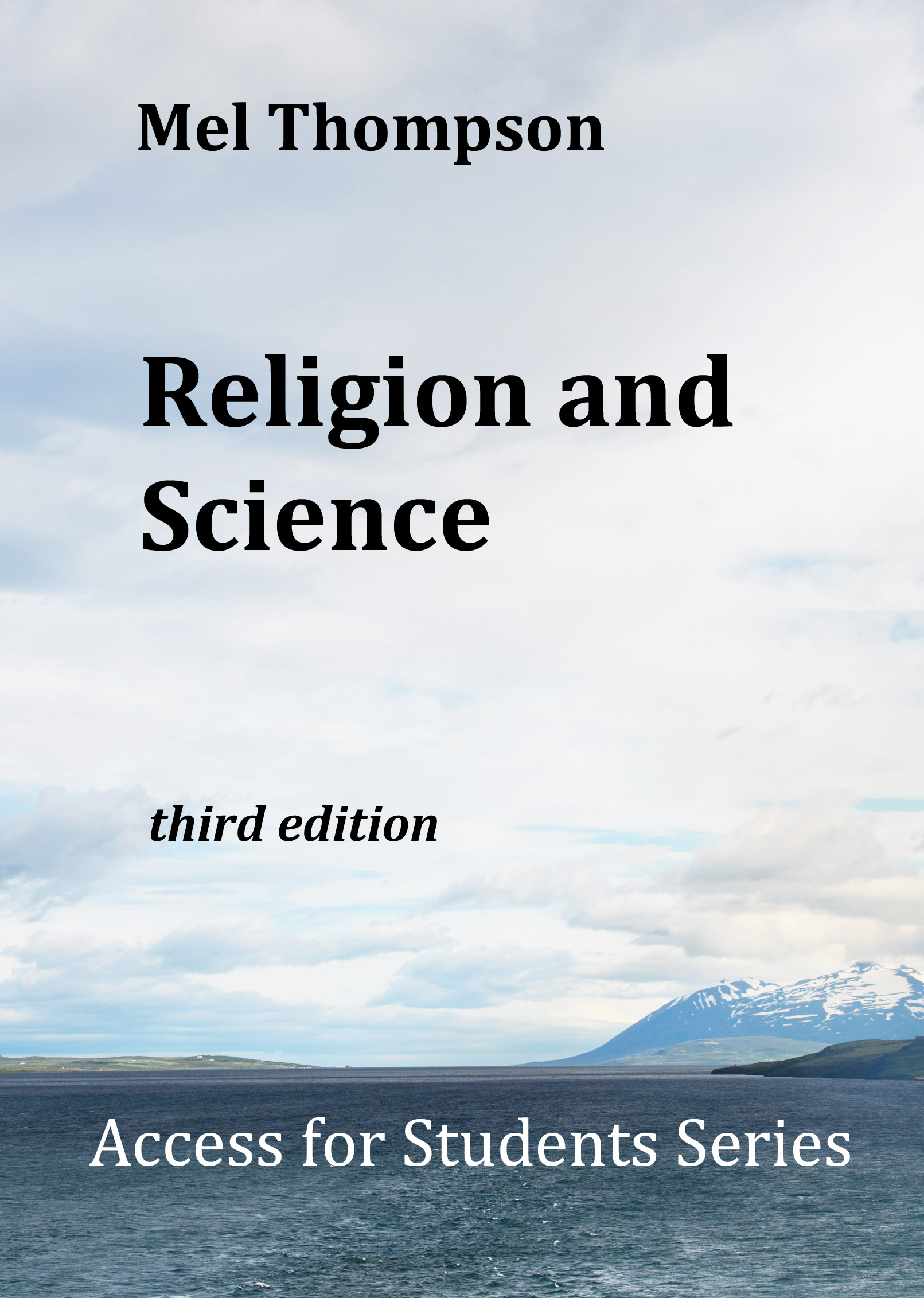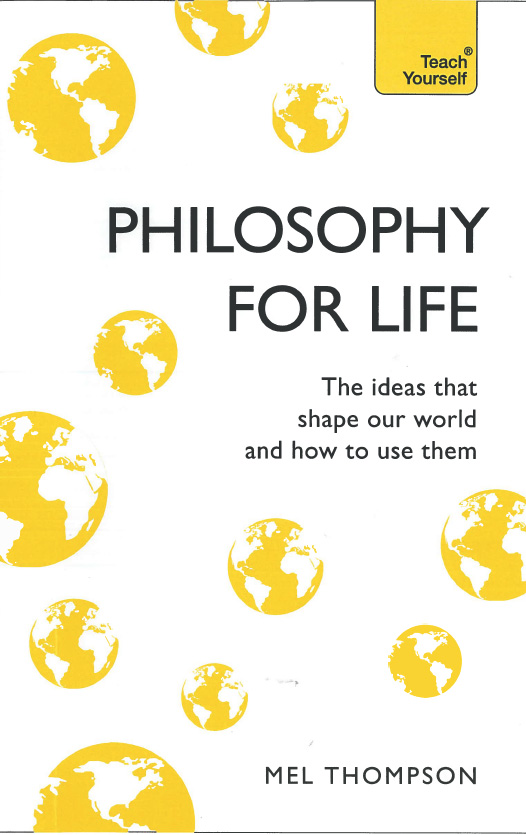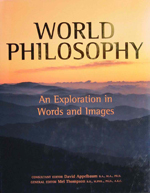Why study the Philosophy of Science?
Philosophy is all about asking questions, examining arguments and generally getting to grips with reality. Nobody is likely to get involved with philosophy unless he or she has some sense that the world is an exciting and sometimes confusing place, and that human life is there to be examined as well as enjoyed.
Nowhere is this fascination with the world more evident than in science and the technology that it makes possible. From speculations about the origins of matter, to the understanding and manipulation of genetic information or the workings of the human body, it thrives on the human desire to unlock the mysteries of the world around us – both for the sake of knowledge itself and for the benefits it can offer.
(from the Introduction to Understand Philosophy of Science)
(If viewing this page on a phone, please turn it sideways now to reveal the list of contents - or just scroll down.)
 'I hope I never loose the capacity to be amazed, whether by the dimensions of space, the intricate systems of nature or the workings of the human brain. Much of what we know about the physical world is conveyed to us by science, and so successful has it been in the last four centuries that there is a danger of slipping into an unquestioning acceptance of every latest theory. However, science remains a human activity, and as such it is based on ideas and arguments that should be examined rationally, questioned and sometimes challenged.'
'I hope I never loose the capacity to be amazed, whether by the dimensions of space, the intricate systems of nature or the workings of the human brain. Much of what we know about the physical world is conveyed to us by science, and so successful has it been in the last four centuries that there is a danger of slipping into an unquestioning acceptance of every latest theory. However, science remains a human activity, and as such it is based on ideas and arguments that should be examined rationally, questioned and sometimes challenged.'
My introductory book: Understand the Philosophy of Science.
Here's an extract from the chapter on Cosmology, to show you the style and level of the book...
Towards a Theory of Everything
Generally speaking, we have seen that science makes progress by examining a limited set of facts, and working from them to formulate theories that may then be applied elsewhere. As theories come into contact with one another, they either clash (in which case the more productive and predictive tends to displace its rivals) or agree (in which case each is reinforced by the other). We have seen also that, as one general paradigm gets replace by another, it is often because the earlier one was limited in its application. So, for example, Newtonian physics was shown to be fine, but only for the very limited conditions found on Earth, whereas Einstein's theories covered more extreme cases found elsewhere.
Logically, therefore, the process of refining and developing scientific theories is moving in the direction of a single theory capable of accounting for all phenomena everywhere: a 'theory of everything'.
In most cases, this is not a practical possibility. In examining living organisms, for example, we have seen that a reductionist approach (in which biology is reduced to chemistry, which in turn is reduced to the physics of the constituent atoms) does not to justice to the phenomenon as a whole. Additional theories are therefore required to show its operation on a holistic level. We have social theories about behaviour and medical theories about the operation of the body's various systems, which operate at a totally different level from those theories that describe the physics and chemistry involved.
However, when we move into the field of cosmology, the possibility of a Theory of Everything becomes more realistic.
In the world as we experience it now, there are various forces, and these operate over different dimensions. The nuclear forces are very powerful but operate over very short distances, holding atoms together. Gravity, by contrast, operates at a much weaker level, but over vast distances, holding objects onto the surface of the Earth, or keeping the stars circling one another in galaxies.
Bump!
To test the relative strengths of the nuclear and gravitational forces, it is only necessary to fall over. Gravity will have the more obvious effect over a distance of about a meter or so, as you topple and fall. On the other hand, at the moment of impact, the nuclear forces holding the atoms that constitute the ground and your body together are clearly superior over that very short distance, and bring you to a sudden halt!
Indeed, it is just as well that the nuclear forces are stronger than gravity, or you would end up as a puddle of sub-atomic particles!
The closer one gets back to the singularity, the simpler the universe becomes. Once matter is formed from radiation and starts to move apart, the fundamental forces that are later to shape it, differentiate from one another. Yet at the point at which the whole universe is compressed into a single point, those forces cannot be separated. Just as, in the area of biological evolution, one may look back to a common ancestor for two related species, so in the area of fundamental physics, one may look for a common ancestor for all existing physical theories.
It is therefore, clearly, a quest for simplicity rather than complexity, reflecting the way in which the universe has moved from a very simple early state to a more complex one now.
 Comment:
Comment:
The problem with describing a very small, compressed universe is that it is unimaginable. The most significant feature of a small-scale object is that its structure is simple, undifferentiated. Therefore, instead of imagining size, try to imagine structure.
Time and space are related to one another. Expansion can be imagined in terms of increasing differentiation: you see things stretching out, changing, cooling, taking on different forms, clumping together under the influence of gravity.
It might be easier to conceive of a very simple early universe, gradually becoming more complex, or an extremely hot, uniform universe becoming gradually cooler and more differentiated.
(from Understand Philosophy of Science, chapter 9)







